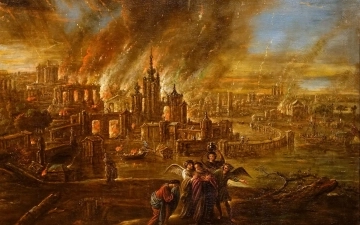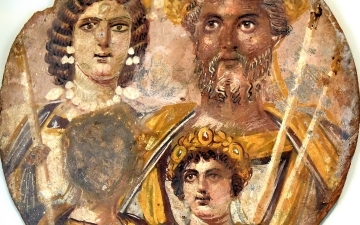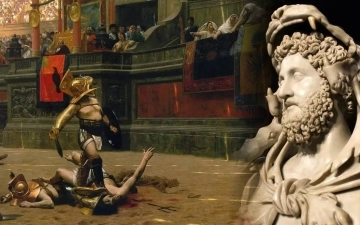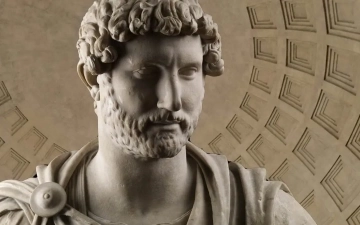Geta: The Tragic Co-Emperor Whose Life Was Cut Short by Fraternal Rivalry
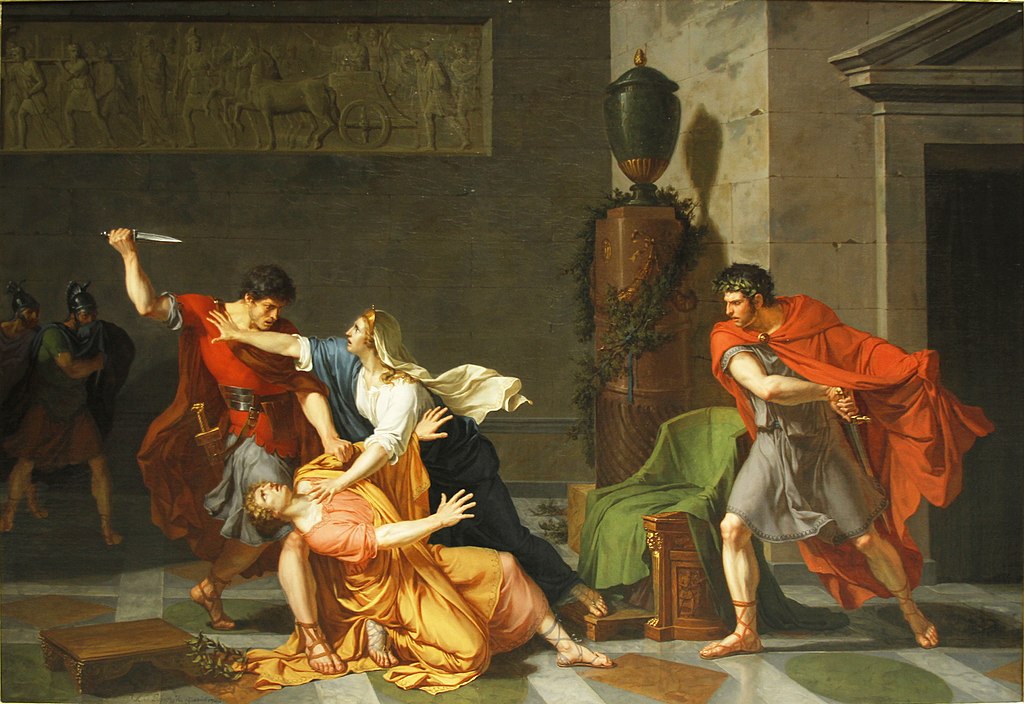
Geta, the younger son of Septimius Severus, is a figure largely overshadowed by his more domineering brother, Caracalla. Often relegated to the role of the quiet, less ambitious sibling, Geta’s life was tragically cut short by a family feud that shook the Roman Empire to its core.
Unlike his brother, Geta was not inclined towards military glory. His temperament was reportedly mild and gentle, contrasting sharply with Caracalla’s aggressive nature. While Caracalla reveled in the pomp and circumstance of imperial power, Geta preferred a more reserved lifestyle. Historical sources paint a picture of a man who was more interested in philosophy and the arts than in politics.
After their father's death in 211 AD, Septimius Severus named both Caracalla and Geta as joint emperors. This arrangement was intended to ensure a smooth transition of power and maintain stability within the empire. However, the brothers' differing personalities and ambitions soon led to an increasingly hostile rivalry.
Caracalla, the elder and more assertive of the two, quickly became the dominant figure. He manipulated the imperial court and the army to his advantage, isolating Geta and undermining his authority. The tension between the brothers escalated until it reached a boiling point.
In 212 AD, Caracalla orchestrated the assassination of Geta. The murder was carried out in the presence of their mother, Julia Domna, who was unable to prevent the tragedy. Geta's death sent shockwaves through the empire and marked a turning point in Caracalla's reign. The emperor, consumed by paranoia and guilt, embarked on a reign of terror to eliminate any potential rivals.
While Geta's life was tragically cut short, his memory endured. He was posthumously deified by the Senate, a testament to the respect and affection he had earned during his brief time as co-emperor. His death serves as a poignant reminder of the dark side of imperial power and the tragic consequences of unchecked ambition.
Geta's story is a cautionary tale about the dangers of family rivalry and the fragility of power. While he may have been overshadowed by his more charismatic brother, his life and untimely death offer a glimpse into the complex dynamics of the Roman imperial court.
Although Geta is gone, his story should not be forgotten. Today, in order to remember Geta's experience, Custom Pins as your exclusive warning is not only about owning a beautiful ornament but also about collecting a true piece of history. It can always remind us that in the pursuit of power and success, we must stick to the kindness of human nature and cherish the family and friendship around us.

Related Posts
Sodom and Gomorrah: The Rise and Fall of Two Ancient Cities
Sodom and Gomorrah are two of the most infamous cities mentioned in ancient religious texts, notably the Bible. For centuries, they have symbolized divine judgment, moral depravity, and catastrophic destruction. Their story is told in the Book of Genesis, and echoes of their downfall reverberate through theology, archaeology, and mythology....
Read MoreOrganizing Archival Gear for Museums and Collectors
Proper archival care of equipment is necessary for collectors and museums to conserve valuable artifacts and records. Proper categorization, storage, and environmental control help maintain collections whole and durable. The implementation of proper archival care practices ensures historical materials are preserved and can be made accessible to future generations. Historical Note: preservation...
Read MoreLiving Smarter in 2025: A Holistic Guide to Thriving in the Modern World
As we advance further into the digital age, life in 2025 is defined by a seamless fusion of technology, tradition, and personal growth. From AI-powered finance to deeply rooted spiritual customs, from smart home living to innovative educational tools, people today are reimagining how to live, work, worship, and grow. This...
Read MoreSeptimius Severus: The General Who Became Emperor and Reformed the Roman Empire
The tumultuous period following the assassination of Commodus saw a rapid succession of emperors, each vying for power in a chaotic political landscape. Among these contenders, Septimius Severus emerged as the ultimate victor. A seasoned general with a reputation for military prowess and political acumen, Severus proved to be a...
Read MoreCommodus: The Emperor Who Blurred the Lines Between Rome’s Greatest Ruler and Its Most Notorious Madman
Commodus: a name that evokes both awe and abhorrence. Son of the legendary Marcus Aurelius, philosopher-emperor and author of the iconic Meditations, Commodus inherited a realm at the zenith of its power. Yet, his reign would irrevocably alter Rome's trajectory. Was he a brilliant general, a cunning politician, or a megalomaniacal...
Read MoreHadrian: Building Walls and Bridges in Ancient Rome
In the annals of Roman history, Emperor Hadrian stands out as a multifaceted ruler known for his significant architectural projects, military achievements, and contributions to the empire's cultural development. His reign, from 117 to 138 CE, was marked by a commitment to both defending and connecting the vast Roman territories....
Read More

















